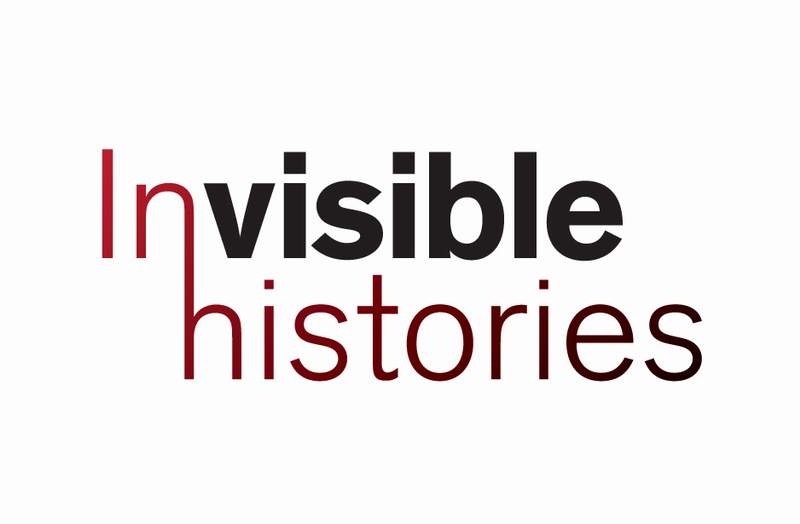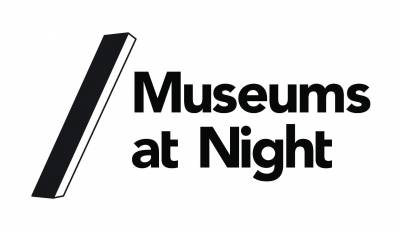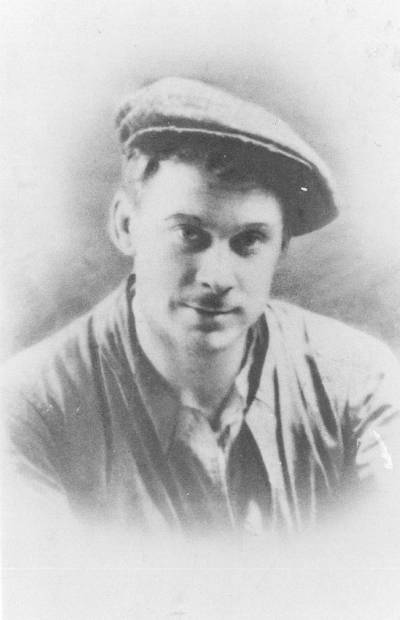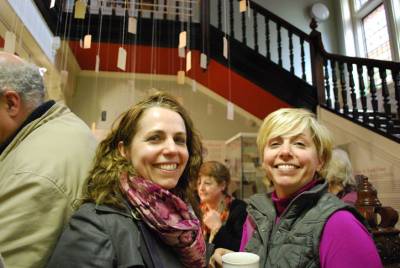ANNUAL REPORT 1 April 2016 - 31 March 2017
INTRODUCTION
The year under review was interesting and challenging for everyone connected with the Library. Thanks to the combined efforts of staff, volunteers, friends and supporters, there was a growth in the overall numbers accessing the Library in most areas, in maintaining and strengthening links with similar organisations nationally and in the Greater Manchester area, such as the People’s History Museum and members of HiDDEN (the network of small heritage organisations), in participating in groups planning to mark significant radical anniversaries, in developing the Library’s strategy and in meeting key areas of the current Development Plan.
We also fulfilled a wish of our founders by editing and publishing a book on the remarkable radical woman, Enid Stacy, written by her equally remarkable niece, Angela Tuckett, were pleased to welcome two new Trustees, Councillor John Ferguson representing Salford City Council and Professor Allan Walker representing Salford University, and held a second, highly successful Radical Readings fundraising event which raised £10,000.
FINANCE
Income from donations overall was slightly ahead of budget. Our thanks are due to our loyal, generous individual and labour movement friends. Salford City Council maintained its grant for the current year despite the cuts in its funding.
Several bequests were received, and we were again grateful to receive a grant of £1,500 from the Edgar Lawley Foundation.
Our outgoings held no surprises and were well in line with budget forecasts.
The Library’s reserves are healthy, but necessary, as we start to plan ahead for a much-needed expansion of storage space to house our ever-growing collection.
STRATEGY
The working groups on Governance, Collection Development, Conservation, Audience Development and Fundraising continue to implement the Library’s Strategy.
USAGE OF THE LIBRARY
The number of emails dealt with in 2016 (1,500) increased by over 50% on what had already been a record year in 2015. Reading Room user numbers have stayed almost exactly the same for the last three years. Tour numbers and phone enquiries were also up in 2016. It is disappointing to note though a fall in ‘drop-in’ visitor numbers – we will be encouraging our hall volunteers to ensure that everyone they welcome signs in, so that we can be sure we are recording numbers accurately. The numbers of people attending events were boosted later in the year by sell-out performances of Townsend Productions’ Dare Devil Rides to Jarama, the reading of Charlotte Delaney’s new play and of course Radical Readings 2 which played to the 800-seat capacity of Salford University’s Maxwell Hall.
We were pleased to welcome so many people this year. To give a flavour, some examples: a group of Salford City Councillors for a discussion and tour, over 60 people for the launch of Unite’s book on Benny Rothman, two of the Cuban ‘Miami 5’, the AGM of the School Libraries Association NW, the 2016 cohort of Clore Fellows (undertaking leadership development activities in the cultural sector), and 30 activists from the Uprising Leadership Programme for young people. Trade unionists who came on tours included CWU, USDAW and Unison young members.
WORKING IN PARTNERSHIP
We are delighted to be part of an Arts Council-funded project with artist James Bloomfield and Salford Museum and Art Gallery - James is looking at World War One. We continue to work with other artists such as Amy Feneck and Ruth Beale. We were also pleased to welcome a community heritage research project group from Lancaster looking at WW1 women peace activists – images and information from our collections are now on the Documenting Dissent Web site at www.documentingdissent.org.uk.
HERITAGE LOTTERY FUND GRANTS

(a) Voting for Change – 150 years of radical movements, 1819-1969
The ‘Collecting Cultures’ HLF funding which is shared with the People’s History Museum has enabled several purchases to be made, including an 1832 Reform Act celebration entertainment invitation and a selection of materials relating to women’s suffrage.
For events, see below.
(b) Resilient Heritage Grant - ‘Skills for the Future’
In February the Library was successful in being awarded £8,000 to carry out a trustee skills audit, potentially including facilitating recruitment of new trustees, and to facilitate an options appraisal process regarding the future housing of our collections.
OTHER DEVELOPMENTS
 Publication – ‘Our Enid’: the life and work of Enid Stacy, 1868–1903. This first biography of Enid Stacy, a very remarkable woman who tirelessly campaigned for socialism in its fullest sense in the late nineteenth and early twentieth centuries was written by her niece, Angela Tuckett, with the encouragement of Eddie and Ruth Frow. However, after publishers’ rejections of the first draft, Angela put it on one side to work on the official history of the Scottish TUC. The manuscript, which she left to the Library, has been edited and published.
Publication – ‘Our Enid’: the life and work of Enid Stacy, 1868–1903. This first biography of Enid Stacy, a very remarkable woman who tirelessly campaigned for socialism in its fullest sense in the late nineteenth and early twentieth centuries was written by her niece, Angela Tuckett, with the encouragement of Eddie and Ruth Frow. However, after publishers’ rejections of the first draft, Angela put it on one side to work on the official history of the Scottish TUC. The manuscript, which she left to the Library, has been edited and published.
Cataloguing – Work has been completed on subject indexing the books and journals in the Paine Room and is ongoing in four other rooms. The Communist Party of Britain archive collection has been re-boxed and catalogued and the Socialist Workers Party collection has been fully catalogued. In addition a large number of posters have been photographed and basic details about them added to the catalogue; these include trade union posters, campaigning posters and posters relating to women.
Updating online learning packs – Work is being undertaken to link our online learning packs to the current history and English curriculum. It is being funded by a donation to the Library in memory of Sally Mitchell.
VOLUNTEERS
We continue to have a full complement of volunteers and a waiting list of people seeking work experience. The range of tasks undertaken now extends from welcoming visitors to developing exhibitions for the NALGO Room and then offered on loan; preparing Library publications for reprinting; repairing, recovering and rebinding books and pamphlets, and cataloguing books, photographs, posters, badges, etc.
Volunteers with staff attended a bespoke conservation training day in April (funded as part of our Voting for Change project) and subsequently assisted in cascading it to more volunteers.
The monthly volunteers’ lunches followed by talks on the Library’s collections have been well attended. In March a lunch was organised at Chetham’s Library for volunteers from the different HiDDEN members to meet and exchange information.
STAFF
Lynette Cawthra, our Library Manager, marked her 10 years of service by taking extended leave. Jane Taylor, our Librarian, took responsibility for the internal running of the Library and Elizabeth Sibbering covered Lynette’s outward-looking tasks. Lynette returned refreshed to manage the Library building and what goes on within it, act as the first point of contact for enquiries, apply for grants and project monies and represent the Library widely. Jane returned to her work of taking responsibility for cataloguing our collection, overseeing the work of volunteers and acting as IT trouble-shooter. Lindsey Cole, our Library Assistant, deals with readers’ requests and undertakes the administration of the Friends’ and fundraising databases.
Our other regular staff continue: Alain Kahan, our retired librarian, works one day a week and gives our users the benefit of his comprehensive knowledge of the collection. Jan Walker keeps the premises to a high standard and Mike Carter, our graphic artist, designed ‘Our Enid’ in addition to his other work.
RAISING THE PROFILE OF THE LIBRARY
Invitations to the Library to take part in events and join projects across Greater Manchester continue to increase as a crop of significant centenaries approach. The Library continues to benefit from its membership of HIDDEN which promotes eight small heritage attractions in Manchester and Salford.
Exhibitions:
The HLF-funded exhibition To End All Wars was replaced in May by To Make That Future Now! – 150 years of the Manchester and Salford Trades Council. From September to late January We Only Want the Earth, an exhibition about James Connolly, marked the centenary of the Easter Rising. This was replaced in February by Everyday Austerity, an exhibition based on two years of research with families on limited budgets in Greater Manchester by Sarah Marie Hall with drawings by North West zine artist Stef Bradley.
Our ‘travelling versions’ of exhibitions are proving popular, and have appeared in various libraries and elsewhere.
Events:
 In April the spring series of Invisible Histories talks concluded with presentations by Robin Stocks on Manchester Volunteers in the Easter Rising and the artist, Richard Milward, who spoke about his painting series Luddites’ Nightmares (one of which was displayed in the hall).
In April the spring series of Invisible Histories talks concluded with presentations by Robin Stocks on Manchester Volunteers in the Easter Rising and the artist, Richard Milward, who spoke about his painting series Luddites’ Nightmares (one of which was displayed in the hall).
The seventh Annual Frow Lecture marked the 80th anniversary of the start of the Spanish Civil War with “A new world in our hearts”: anarchism and the Spanish Civil War by Richard Cleminson. The Library joined forces with Salford Museum and Art Gallery and Islington Mill for Sarsaparilla Sounds, Salford’s contribution to Manchester After Hours. Later in the month a fundraising event, Fishing in the Dustbowl, was held with east coast fishing songs performed by John Conolly and Woody Guthrie songs by Will Kaufman.
Our third mini film festival took place in late May and early June with films on Joan Littlewood, Watford Conscientious Objectors and Tom Paine – an interesting mix! Talkin’ ‘Bout that Representation was part of both the Manchester Histories Festival and our Voting for Change project, and looked at the 1969 Act of Parliament lowering the voting age from 21 to 18, alongside the recent Votes at 16 campaign
In July a ‘Democracy Drop In’ was held as part of our Voting for Change project which gave participants access to our newly acquired archive of election material.
The Autumn series of Invisible Histories started in September with talks by Granville Williams on international solidarity during the 1984-85 Miners’ Strike and Ray Physick on the Olimpiada Popular of 1936 and the inter-war workers’ sports movement. A very successful conference on Radical Women 1880 – 1914 was held in the Old Fire Station, Salford University.
 In October, there were three well-attended talks: Black History Month was marked by Lou Kushnick, speaking on Race, Racism and the Working Class Struggle; followed by Katrina Navickas on Chartist protests and Nicole Robertson on clerical trade unions in the early twentieth century. The Museums at Night event contrasted regional broadside ballads sung by Jennifer Reid with original songs on the struggle for the ballot by singer-songwriter Quiet Loner.
In October, there were three well-attended talks: Black History Month was marked by Lou Kushnick, speaking on Race, Racism and the Working Class Struggle; followed by Katrina Navickas on Chartist protests and Nicole Robertson on clerical trade unions in the early twentieth century. The Museums at Night event contrasted regional broadside ballads sung by Jennifer Reid with original songs on the struggle for the ballot by singer-songwriter Quiet Loner.
November opened with a remarkable event - the première of a reading of Charlotte Delaney’s play Sweet Responsibility by MaD Theatre. There were two Invisible Histories talks – Mervyn Busteed on Engels and the Manchester Irish and Malcolm Pittock on Albert Evans, a World War One conscientious objector from Bolton. Attenders at our first Edit-a-thon edited material on Wikipedia relating to the fight for the vote. This remarkably busy month finished with the highly successful fundraiser Radical Reading 2.

Clem Beckett
In January Townsend Productions gave two sell-out performances of Dare Devil Rides to Jarama on the life of Oldham’s speedway rider and Communist Clem Beckett, who fought and died in the Spanish Civil War.
The main event in February dominated much of the Library’s time in January when a concerted campaign was mounted on Facebook by people who wanted the speaker to be ‘no platformed’. The talk to mark LGBT History Month, Julie Bindel on Growing up working class and lesbian in the North of England, went ahead with an all ticket audience.
Our International Women’s Day event in March celebrated two remarkable black women – Marika Sherwood spoke on Claudia Jones, Communist, feminist, peace activist, orator, journalist, and Peggy Mulongo spoke on her work on women’s rights with the charity NESTAC – New Step for African Community. A spring series of Invisible Histories started with Trevor Fisher assessing the 1817 March of the Blanketeers and Geoff Andrews on James Klugman.
Social Media:
The Library has over 4,300 Twitter followers, up by just over 1,000 from last year, and over 4,500 Facebook likes, again up by just under 1,000. Our Instagram account is a more recent innovation, and has getting on for 200 followers.
There were seventeen posts written for the Library blog during the year on a variety of subjects, including highlighting items bought under the HLF Voting for Change project and a variety of book reviews.
Publicity:
Lorna Easterbrook produced a promotional photo film about the Library for us, at no charge – it is available at https://vimeo.com/170276727 or via our Web site.
We created a publicity leaflet about our Irish collections for the delegate pack of a conference of Irish historians at the Institute of Irish Studies, University of Liverpool in July.
During the period the Library issued 15 press releases, and featured in amongst other places Manchester Evening News and The Skinny, the programme of FC United of Manchester’s home match v Salford City, and on the Web sites of Salford Star, Manchester Wire and Creative Tourist. On Web site http://mancunion.com in February we were listed in the ‘top five Manchester [sic] libraries you must visit’.
CONCLUSION
The Trustees wish to record their gratitude to the staff, volunteers, friends and supporters for their invaluable contributions to the Library. They are also grateful to all who contribute financially either individually or through their organisations.
The Trustees wish to restate their determination to ensure the long-term future and continuing development of the Library in accordance with its values and principles and to thwart the establishment’s marginalisation of working class history of struggle.


